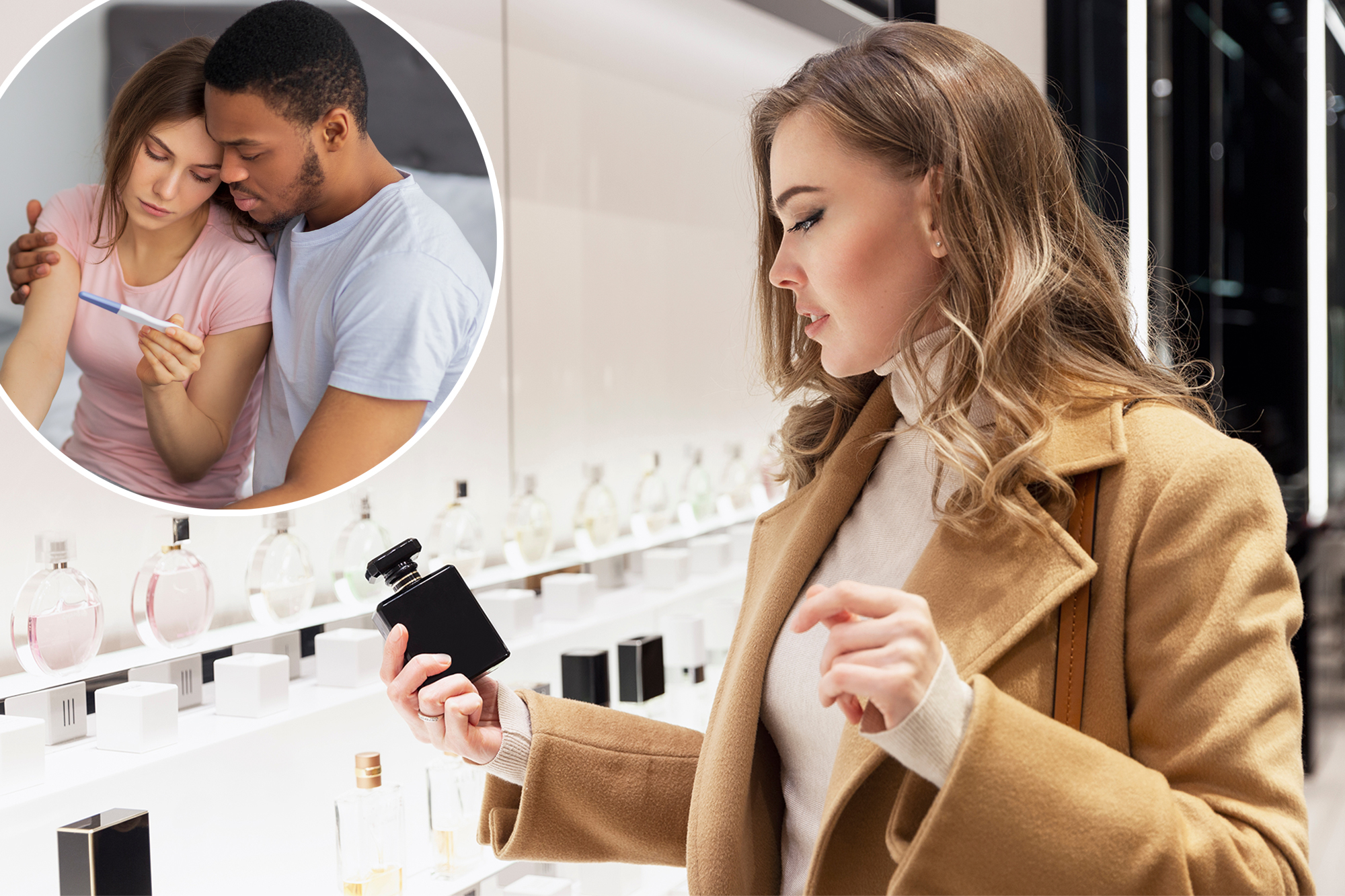
Water no.
Spraying on your perfume may make you feel good in the short term, but doctors are warning that a hidden ingredient in your favorite fragrance could lead to a range of health problems, from insulin resistance and cardiovascular disease to hormonal problems that can affect fertility.
Phthalates are a common ingredient in cosmetics; In addition to perfumes, they can be found in nail polish, hairspray, shampoo, body wash, deodorant and hand wash.
Different types of phthalates have different uses. Dibutyl phthalate (DBP) makes plastic more flexible and has been used in nail polishes to stop them from cracking. Dimethyl phthalate (DMP) also adds flexibility and is used in some hairsprays.
Neither DBP nor DMP are widely used these days, according to the FDA, but diethyl phthalate (DEP) — which is used in perfumes to blend different scents together — is, and experts think steering clear is the best way to go. of action. for our health.
“I recommend avoiding added fragrances altogether — in perfumes, scented lotions and shampoos, even scented detergents and antiperspirants,” Andrea Gore, a professor of pharmacology and toxicology at the University of Texas at Austin, told the Washington Post.
So why should people worry?
Numerous studies have linked phthalates to various health issues, including heart disease, obesity, insulin resistance, and diabetes.
A 2020 study also linked phthalates in the body to behavioral problems associated with ADHD in teenagers, and the Cleveland Clinic reports that it can lead to allergies and asthma as well.
Experts also believe they are hormone disruptors. Based on early research, phthalates may have an impact on fertility in both sexes, inhibit the development of reproductive organs and cause problems in pregnancy and childbirth.
“Phthalates are endocrine disruptors that can interfere with hormonal and cellular function within the reproductive system. Research has linked high levels of phthalates to increased risk of infertility, poor sperm parameters, poor egg quality and miscarriage,” Dr. Lora Shahine, MD, FACOG, a reproductive endocrinologist at PNWF told the New York Post. Seattle.
For women, she warned, phthalates have also been linked to missed periods, ovulation dysfunction and increased risk of endometriosis. The exposure may also cause girls to enter puberty at an earlier age, according to a 2018 study from the University of California, Berkeley.
It can cause similar problems for men: A 2002 Harvard University study found that men with normal levels of phthalate exposure were associated with increased DNA damage in their sperm.
Dr. Shahine, who hosts the Baby or Bust Fertility podcast, also pointed to studies showing links between phthalates and miscarriage and premature birth.
In fact, the Consumer Product Safety Improvement Act, signed into law in 2008, bans children’s products with phthalate levels that are higher than 0.1%.
Is there really enough perfume to be harmful?
According to the FDA, no — but some experts beg to differ.
The Cosmetic Ingredient Review Panel published a report in 2002 saying that phthalates were safe in cosmetic products, claiming that the level of exposure is not high enough to be harmful. A year ago, the CDC released its own report that concluded there was no link between phthalates in cosmetic products and health risks.
But Dr. Shahine says customers should be careful.
“Companies that use phthalates in products will say, ‘The poison is in the dose’ and ‘A little perfume can’t hurt you,’ but the issue is the accumulation of all phthalates and other endocrine disruptors like BPA, PFAS and parabens in exposure our daily increases,” she explained.
“The average woman uses 12 beauty products a day (according to the Environmental Working Group), plus chemical exposure from laundry detergent, cleaning products and more – no company is tracking the accumulation of exposure over time and the risk to the individual. We cannot eliminate exposure to endocrine disruptors, but we can limit the number of products (including perfume) to reduce the risk.”
And Gore, the professor of pharmacology and toxicology, told the Washington Post that the animal evidence is quite compelling.
“If a chemical has endocrine-disrupting effects in animals, there is an extremely high certainty that this is also the case in humans,” she said. “The hormones of the endocrine system are structurally and functionally similar, if not identical, in nonhuman and human animals.”
What should we do about it?
Even if you’re ready to give up phthalates, it can be difficult to ditch products made with them because they don’t actually have to be listed on any ingredient labels. The FDA does not regulate the ingredients of cosmetic products at all, ruling that cosmetics simply “must be safe under the labeled or usual conditions of use.”
But there are some solutions. Databases like those run by the Campaign for Safe Cosmetics and EWG’s Skin Deep allow users to search specific products they use for a breakdown of ingredient concerns.
And Dr. Shahine recommends that people can lower their products together.
“Reducing the number of fragrance products you buy and use is helpful,” she said. “Try unscented cleaning products, limit the use of fragrances and scented candles, and when products run out, really examine and think about the replacement product you’re buying.
“A big issue is that companies can claim ‘fragrance’ as a trademark secret, and phthalates are often used to extend the shelf life and fragrance of a product, so assume that ‘fragrance’ or ‘perfume’ as an ingredient in a product means that phthalates are most likely involved.”
#hidden #ingredient #perfume #lead #heart #problems #obesity #infertility
Image Source : nypost.com